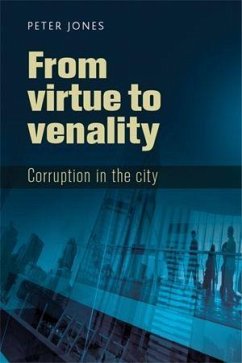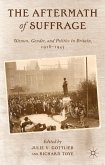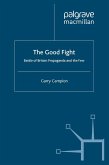From virtue to venality examines the problem of corruption in British urban society and politics between 1930 and 1995. It is not a conventional study of the politics of local government since it seeks to place corruption in urban societies in a wider cultural context. It endeavours to reclaim the study of corruption from political scientists and sociologists for historians. It examines theoretical explanations of the causes of corruption and tests those causes against real case studies. The legacy of the municipal gospel inherited from the nineteenth century, notions of public service and the ethical principles that supported those ideals are analysed to show how those apparent virtues were eroded over time. It suggests that one of the key counterweights against corruption is a strong civil society and argues that British civil society has become detached from the city and urban society allowing the corrupt politicians and business men almost unchallenged licence to further their own ambitions by corrupt means. Britain's imperial past has also deflected political leaders from the evidence before them contributing to their failure to develop a robust approach to reform. The accounts of corruption in Glasgow - a British Chicago - as well as the major corruption scandals of John Poulson and T. Dan Smith show how Labour-controlled towns and cities were especially vulnerable to corrupt dealings. The case of Dame Shirley Porter in the City of Westminster in the late 1980s reveals that Conservative-controlled councils were also vulnerable since in London the stakes of the political struggle were especially intense. It will be of special interest to students of history and politics and those who are concerned about the growth of corruption in British political culture.
Hinweis: Dieser Artikel kann nur an eine deutsche Lieferadresse ausgeliefert werden.
Hinweis: Dieser Artikel kann nur an eine deutsche Lieferadresse ausgeliefert werden.








